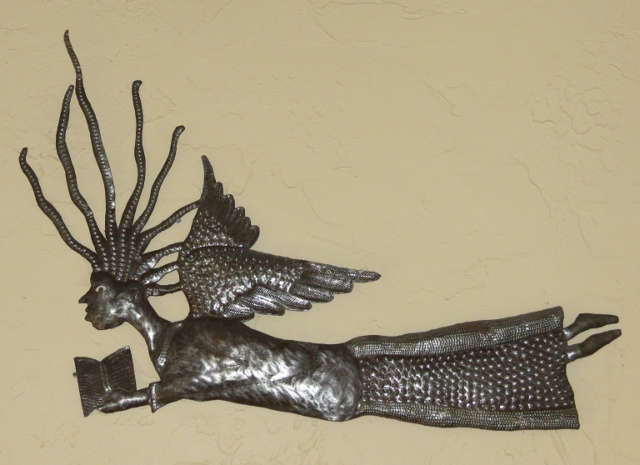
A new book by Robert Arnaud and Paolo Woods reviewing the meaning of “State” as it applies – and doesn’t in Haiti.
A new book by Arnaud Robert and Paolo Woods entitled, “State” was released in France in September and just this week has become available for pre-order on Amazon. It has been generating a good deal of attention both here and abroad for its examination of the national identity forged in Haiti in spite of the State. Through photos and text, Robert and Woods show how the country of Haiti is actually held together by resistance, humor, creation and culture. It articulates a nation in the absence of State.
Their choice of Haiti as a subject was hardly a good one from the perspective of news. Photo editors complained that they had had their fill of images depicting the ravages of the earthquake and the cholera epidemic that swept the country. Misery reporting overload obliged Woods and Robert to stay away from the photo stories that had typically come out of the island. Working on pieces for a variety of European and American publications from a new location and a new perspective, they based themselves in Les Cayes and thereby escaped the usual tug of the news cycle in Port-au-Prince. In so doing, they were able to delve into several topics of great importance that had been largely overlooked.
Among the many aspects of Haitian life that they took on, the one that has generated the most controversy is also perhaps the most intriguing. Woods and Robert spent a great deal of time with Haiti’s moneyed elite. On the instituteartist website, (Click here to view: http://www.instituteartist.com/) Woods is quoted as saying, “The country’s top-tier wealthy citizens have been denounced as corrupt profiteers, but I have a strong respect for them. They are entrepreneurs who have made their fortunes here and could have easily taken their money and moved to Miami to lead very comfortable lives. But to stay, to live and work in Haiti is not easy. You have to love your country enormously to do that.” In fact, he points out, the top 500 taxpayers in Haiti represent 1% of the population, yet account for 80% of their tax revenues. (How’s that for a tax burden?) Woods believes that wealthy individuals may well represent the winds of change for Haiti; change for the better that outsiders have tried and failed to accomplish. Perhaps outrageous, and definitely inflammatory, it’s an opinion that bears consideration. Change born from within instead of imposed from without. It might be the change that succeeds.
“State.” Buy it or borrow it, and then read it. At least look at the pictures and see what you think. (I feel another book club coming on…)
Contributed by Linda for Beyond Borders/It’s Cactus

